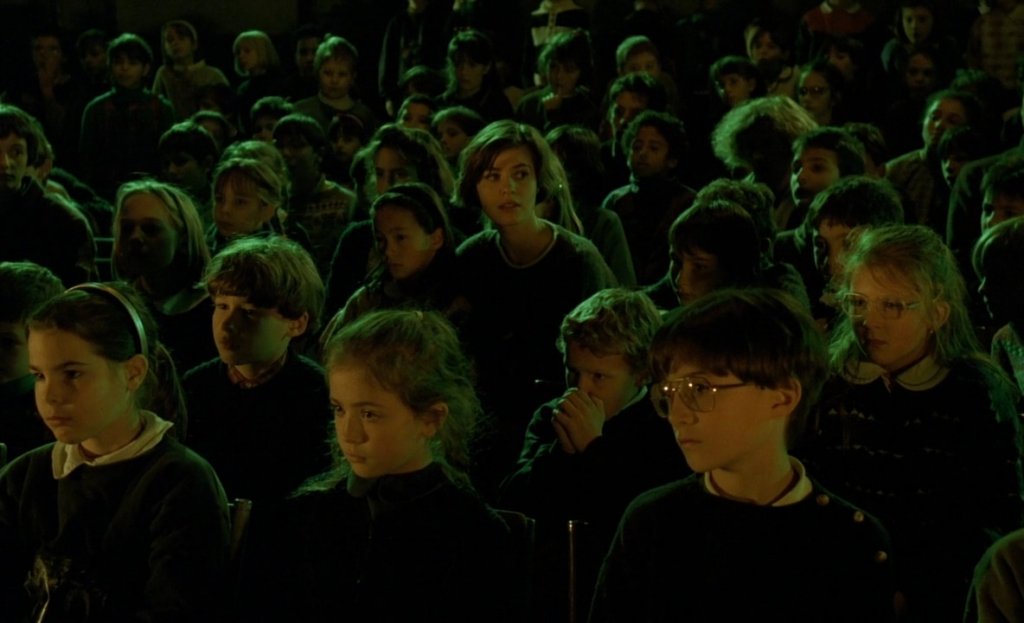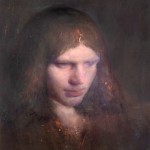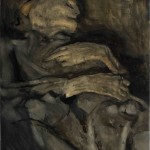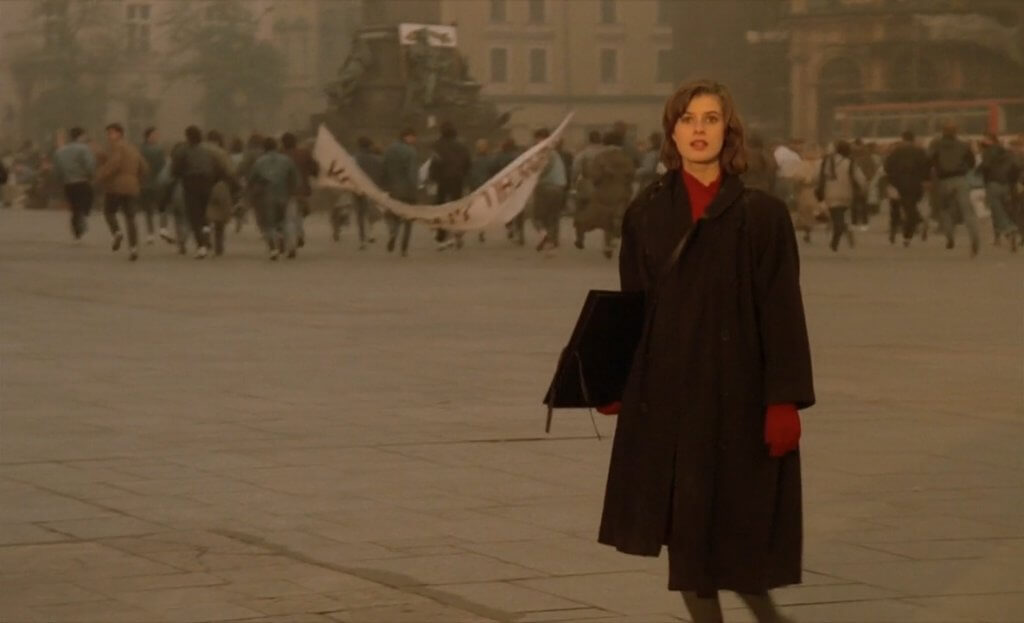News and Articles › Gripping Film Moments
Must the kitsch painter continue to do the dirty work for a lightweight league of artists?
— Odd Nerdrum, kitsch painter
Top list
View the entire list
Why do I feel nostalgic about this movie…
It is mysterious – ambiguous and some times a little bit too “deep” for my comprehension. But it is also sentimental – full of human compassion – and full of… mirrors.
Weronika and Veronique are identical twins living separate lives in Poland and France. They use identical lipsticks and share habits like listening with the headphones upside down.
But trivialities aside – they both have an immense talent for singing. The only thing which breaks them apart is empirical experience.
At some point in the story their paths cross – in a very subtle way.
Weronika has just been asked to audition for the lead singer in a concert performance when she discovers her doppelgänger on a street in Krakow – seated on a tour bus.
It is a common myth that when you see your identical twin – it is an omen of death – which is exactly what is coming to her.
Subtlety certainly haunts Krysztof Kieslowski’s movies. To a large degree The Double Life of Veronique (1991) is stripped from unnecessary dialogue and events – which makes Veronique’s life all the more dreamlike.
This notion is empowered by the soft – green – yellowish cinematography as well as the repetitive images of the old lady and other delicate details.
Every scene features Weronika / Veronique and the events take place from the main character’s point of view. This technique has been used in other great movies such as Children of Men (2006) and Black Swan (2010).
But what is the most gripping moment in this movie? In my mind there is no doubt about it…
While watching this scene for the first time I wondered:
Which long dead composer produced this marvellous piece of music?
It literally sent shivers up my spine a dozen times in a matter of seconds!
However familiar the music sounded I could not make sense of it. But then I noticed the name “Van Den Budenmayer” and in a scene later on – Veronique talked of a recently discovered dutch composer who lived two centuries ago.
What!
Had I missed out on something here?
Well it turned out that Van Den Budenmayer was a historical figure of pure fiction and that the film score in its entirety was created by Zbigniew Preisner who was born in 1955!
You can imagine my shock.
The Polish composer Zbigniew Preisner was Kieslowski’s best friend and they collaborated on several projects such as the Three Colors Trilogy and the Dekalog tv-series. Following Kieslowski’s untimely death in 1996 – Preisner even composed a requiem in his honor.
Another moment from The Double Life of Veronique that caught my eye – happened in the puppetry scene:
The kids have their eyes fixed on the puppet show while Veronique observes the reflection in the mirror of the puppet master. With all due respect to the children – just look at how the old woman covers the dead girl with the blanket – hesitating for a second to look at the child one last time – and then tilts her head as she covers the body entirely.
I have never seen a more liveful marionette performance in my life.
Veronique is equally entrhalled by Alexandre Fabbri’s puppet show and falls in love with him.
Everything about him reminds her of her dead sister Weronika – who’s presence in her life she can only sense vaguely.
When Alexandre and Veronique finally come together after several complications – he discovers a photograph of Weronika that Veronique captured by chance on her trip to Krakow.
She bursts into tears and he makes love to her.
The final image of the film is rather odd at first glance.
Veronique arrives at the front gate of her father’s estate. She pulls down the car window and rests her palm on a big tree. Her father who is cutting wood inside the house stops for a moment and looks into the air with a strange look on his face.
Music fades in and the film ends.
Now what on earth was that all about – a desperate way to end a very precisely made movie?
Certainly not.
First off – the palm on the tree is a mirror of the opening image of Weronika and Veronique as children. Weronika’s mother shows her daughter the starry sky above them and Veronique’s mother shows her daughter the veins on a leaf. Interestingly – Weronika later on looks through a transparent ball and sees the world from the same perspective. On the whole the two girls represent the heavenly and the earthly.
Second off is the father’s expression.
Something is wrong – terribly wrong. If Veronique had an identical twin in Poland – then who is Veronique’s father?
One must take into account that the film includes a scene where Weronika’s aunt hints at a medical condition that runs in the family – which could explain that Veronique has been adopted.
But who is the biological mother? One could go on forever and perhaps the whole idea about a family relation is wrong and that the ending scene of The Double Life of Veronique is simply very “deep.”
But then again – Kieslowski denied that there were any metaphors in his movies and he has been quoted saying: “For me a bottle of milk is simply a bottle of milk; when it spills, it means milk’s been spilled.”
Structural Qualities
It may not seem like a “calculating” movie but it actually does follow a lot of rules that I consider unbreakable:
Thesis (6:30) – Weronika says “I don’t think I am alone in this world” – she is actually questioning it.
Catalyst (13:00) – Weronika sees her double – Veronique – on a street in Krakow.
Antithesis (26:00) – Weronika suffers her second heart attack during the performance of a piece by the mysterious Van Den Budenmayer – and dies. The audience is then introduced to Veronique who lives in a different country and who decides to give up her singing career. The world is placed on its head.
B Story (33:00) – Veronique is introduced to Alexandre Fabbri during his marionette performace on her school. Just as the b-character should do – he guides the main character forward to the resolution of the film:
Synthesis (120:00) – Veronique discovers the photograph of Weronika that she captured by chance on a bus in Krakow. The question posed in the opening minutes of the movie has been answered and Veronique bursts into purifying tears.
Published on Saturday, December 17th, 2016







By far the best analysis this movie can ever get!!